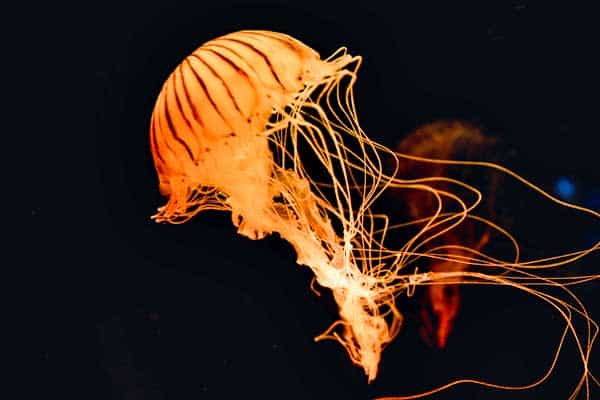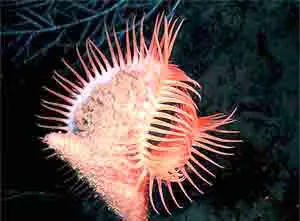Bears are truly amazing creatures. They will hibernate through the long cold winter and their calm and cute posture have caused many people to fall in love with them.
Why do bears hibernate? Bears hibernate in order to survive the winter without food. It is a common misconception that bears hibernate because of the cold weather, but that’s not the case. During hibernation, the bear will tear on its own body fat. It’s easier than finding food during the 5 months of hibernation.
So what is the purpose of hibernation? And how can the bear manage to pull off this amazing trick?
Let’s take a closer look and find out why bears and some other animals have this strange habit.
Table of Contents
Let’s start by looking at what actually happens during the quiet months in the dens.
What Happens When Animals Hibernate?
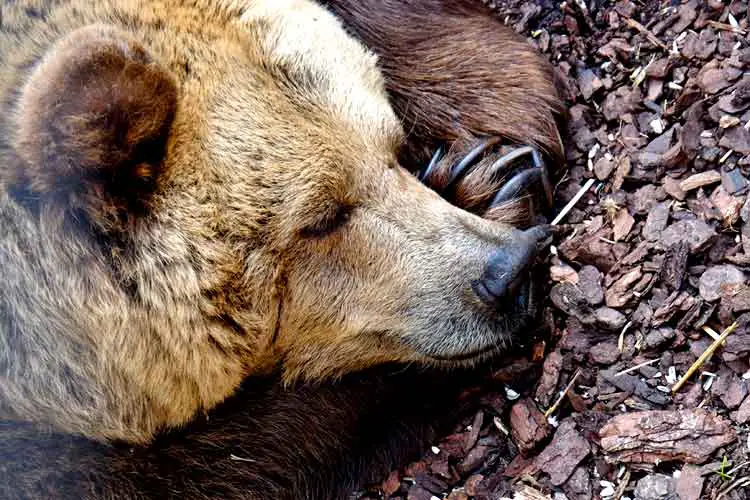
Animals have several ways of surviving the cold winter. Some animals will migrate to warmer areas while others go into hibernation like the brown bears.
You would think that the hibernating bear is totally out. You would also think that its muscles and bones would weaken after months of hibernation. But that’s actually not the case.
Bears are able to recycle calcium into their bones during hibernation. That way the bones will not weaken too much and when the bear wakes up it is 100% fit and ready for the next season.
Scientists have been able to track the cardiac activity of black bears all over the year. Including the month they go into hibernation.
And what they have found this quite astonishing!
The heart rate drops significantly
When bears go into deep hibernation they can slow down their breaths to two only 2 breaths per minute. Once in a while, there will go up to 14 seconds(!) between the heartbeats of the animal.
Studies have also shown that even though bears go into keep hibernation they are still fully aware of their surroundings. As soon as the scientists approach the bear (in hibernation state) the heart rate of the animal would go up even though they didn’t make a sound.
This proves that the Bears are actually alert and they are ready to take action in case they have to.
The body temperature also drops
The parking temperature of the bear wood drop around 4 to 5°. This helps the bear survive and be well during the hibernation period.
This is a very special feature you don’t find and many other animals. To be able to slow down your heart rate and body temperature like this is very impressive and unique.
Do bears wake up to give birth during hibernation?
Yes. The gestation period (pregnancy length) is up to 250 days for black bears and the mother bear shows some remarkable behavior.
The mother will typically give birth to the little cubs in late January.
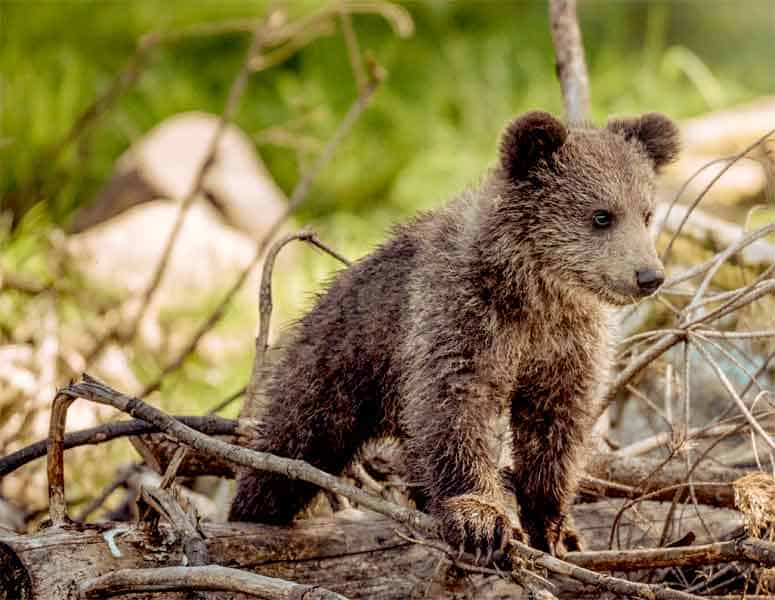
Because the cups are super small they are able to not wander off by themselves even though the mother is still hibernating. They are only the size of a squirrel when they are born and they are completely blind and helpless. They will drink the milk from the mother which contains over 30% fat.
The mother will go into deeper hibernation at the beginning of the pregnancy and as they approach the time of birth, the heart rate of the bear increases gradually.
She will then wake up to give birth and after she is done her heart rate can continue at the same low level as during hibernation!
Little baby bears are well protected inside the den because they are safe from danger and the surrounding animals.
They have some preparations to do!
Animals have to do a lot of preparations before they can go into the hibernation state for months. They will have to find just the perfect spot before they can even start preparing the space.
As soon as they have found a cave or den to lay down they will have to eat a lot of extra food.
It will do so in order to increase its body mass. This is an important step for the bear in order to be able to live from its own body fat during the long period of hibernation.
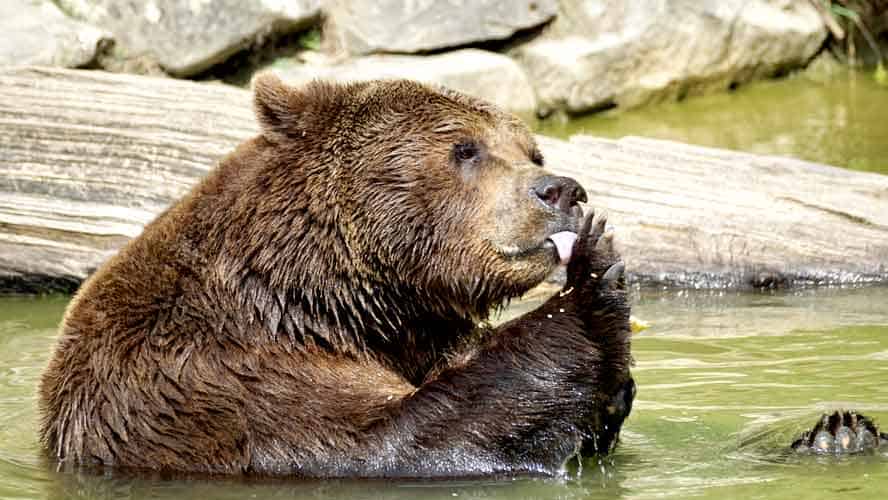
How Can Hibernating Bears Survive Without Water And Food?
When bears go into hibernation they lived primarily from their own body fat.
A bear entering hibernation state will have a lot of stored fat on its body. It would burn up some of that body fat and It will typically lose around 20% of its body weight during the period.
As we mentioned above, the bears will eat a lot of extra food in the months leading up to hibernation. To do so to increase their body mass as much as possible because doing the hibernation they will be burning a lot of the fat. So in order to stay healthy and not get too skinny, they have to eat a lot.
As soon as the bears wake up they will also be very hungry and immediately start looking for food.
This will sometimes cause problems if they encounter humans or other animals as they tend to be more aggressive in this period. They can get pretty desperate if they do not find food quickly.
So you should never approach a bear around April or September because it is not as relaxed as during the warmer summer months. For the same reason, these are also the periods where people tend to get in trouble around bears.
How Long Does A Bear Go Into Hibernation?
Bear will typically hibernate for 5 to 6 months. But This doesn’t mean that is totally out during that half-year.
Bears will typically wake up a few times and they might even wander out of the cave or dens once in a while. This will typically happen if they are noticing any danger approaching. The bear is fully alert during hibernation so it will wake up if it senses any danger.
In case of continual noise or disturbances, a bear might wake up early and not go back to hibernation.
When Do Black Bears Start Hibernating?
Black bears will typically begin their hibernation period at the end of September/October or even as late as the beginning of November.
They will stay in the dens for almost half a year and they will typically wake up during April.
It will vary from bear to bear and from year to year. But normally the bear will wake up when the weather starts to heat up again.
Do Bears Poop When They Hibernate?
Nope. They will not eat, drink, or poop.
They might eventually wake up a few times if there is any noise if they sense danger. While awake it might take a poop but normally it will just stay down and not even poop during the 6 years.
Quite remarkable.
You would think that a bear would have to go to the bathroom during hibernation but they don’t.
So how do they do it? Studies have shown that bears in hibernation will form a sort of “poop plug” in order to keep the poop inside their body. It consists of dried out poop and help the bear keep it all in.
Which Animals Can Hibernate?
We know that black bears go into hibernation but what about other types of bears? And do other animals also have the ability to go into hibernation?
Let’s find out!
As it turns out, there are quite a lot of animals who can hibernate.
Here’s a list of animals who can go into hibernation during the winter season:
- Bats
- Chipmunks
- Skunks
- Snakes
- Groundhogs
- Bees
Bats are also particularly interesting to look into in relation to hibernation. They go into much deeper sleep compared to the bears. They are able to slow down their breath to an extreme minimum.
Bats has been observed to pause for a whole hour between breaths!
They’ve wake up a few times in order to drink a little bit. But other than that they are totally out. This also means that they are not alert to dangers such as our bear friends.
So as you can see it can be quite dangerous for bats during the many months of hibernation. First and foremost, they have to eat and drink enough before they go into this state. But more importantly, they could also get attacked by other animals while they are out.
Another brilliant hibernator is the Arctic Ground Squirrel. They can lower their body temperature to below the freezing point! So you can imagine they don’t need much energy to stay alive during these months.
Do Panda Bears Hibernate?
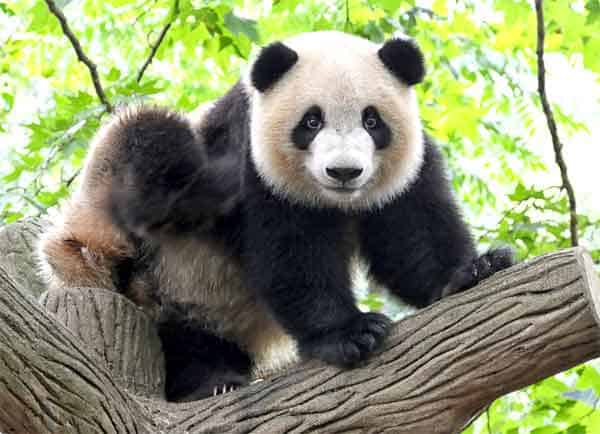
No. They migrate. They will wander to the warmer areas in order to keep warm and find food during the winter period.
Panda bears are only found in the mountain regions of Central China. And in these areas is just easier for the panda bears to go down from the mountains in order to find food and it’s not that hard to find bamboo anyway. They don’t hunt and are not dependent on catching fish like black bears.
The Panda bears are not really closely related to the black bears anyway. In fact, there are still a lot of debating whether Panda bears are bears or Raccoons.
They have close similarities with bears (obviously) but they are also quite similar to Raccoons.
You might also find a hint in their eating habits. Other bears will normally eat meat and fish but the Panda bears live primarily from bamboo and will only eat meat in very rare circumstances. Or if they really have to.
You can find another article about keeping Pandas as pets here.
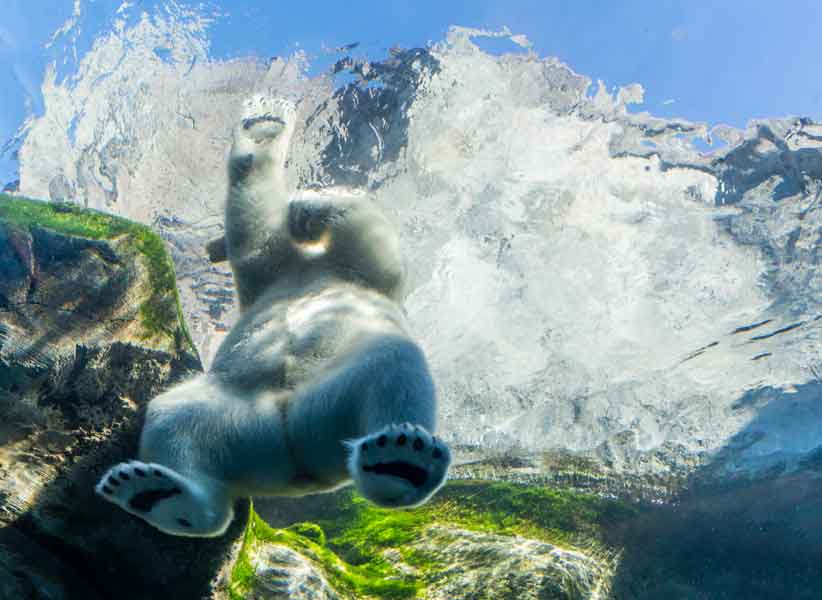
Can Humans Go Into Hibernation?
That’s a pretty hard question to answer actually.
There have been reports of people who have survived long periods of time in cold snow for example. That is hard to know exactly what happened. One 35-year-old Japanese guy once survived 24 days in the cold snow. His body temperature has dropped a lot and his organs had shut down.
Still, he was able to make a full recovery!
So the best answer we can give it’s probably that we don’t know for sure. But it wouldn’t really make much sense for humans to go into hibernation. Remember that animals do this to survive the winter without food and this wouldn’t be necessary for humans obviously.
Sources: sciencedaily, defendersblog.org, livescience.com



